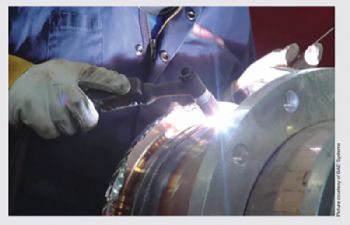
Despite positive changes that include halving ‘co-investment costs,’ small businesses in England are still struggling to take on new apprentices after the 2017 reforms, according to new research from the Federation of Small Businesses (FSB).
It believes that the upcoming Review of the Apprenticeship Levy and the Spending Review 2019 are opportunities that the Government cannot afford to miss, “if we are to safeguard the vital provision of apprenticeships that small firms currently rely on, and to reverse the downward trend of new starts”.
The FSB (
www.fsb.org.uk) research finds that of those small firms that employed apprentices before and after the 2017 reforms, 27% say the reforms have had a negative impact on their business.
Recruiting an apprentice, management time and the 20% off-the-job training requirement were seen as the three biggest challenges when engaging with apprenticeships.
The FSB says that since the introduction of the reforms in 2017, apprenticeship numbers have fallen behind pre-reform levels, particularly Level 2 and Level 3 apprenticeship starts, which are often undertaken by young people beginning their careers.
“Government statistics show that since 2015/16, Level 2 and Level 3 apprenticeship starts have fallen by 45% and 13% respectively.
The vast majority — some 87% — of apprenticeships offered by smaller businesses are at these levels, and 92% of apprenticeships offered are undertaken by 16- to 24-year-olds.”
Responding to the findings, FSB national chairman Mike Cherry raised concerns about the reforms and the impact they have had on small firms. He said: “Small businesses are champions of apprenticeships, as they are a great way to tackle skills shortages that often affect them — and to give young people their first step into employment.
Worryingly, our research shows that many small firms are turning away from apprenticeships, with some of the 2017 reforms being the cause. Changes like the explicit requirement for a minimum of 20% off-the-job training are causing real headaches.
“The more recent halving of the co-investment requirement to 5% is a major step forward to reduce the cost of apprenticeships, but small businesses need more support like this, if they are to continue to be the champions of apprenticeships.
It must not be forgotten that our small firms provide 60% of private-sector employment, and it is for this reason that they must be the ones driving the system forward.”
The FSB, which has made a number of detailed recommendations, is calling on the Government to put apprenticeship funding on a sustainable footing and to ensure that small businesses are not excluded from the apprenticeship system.